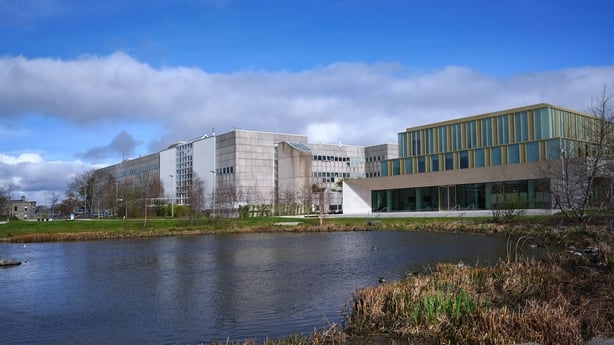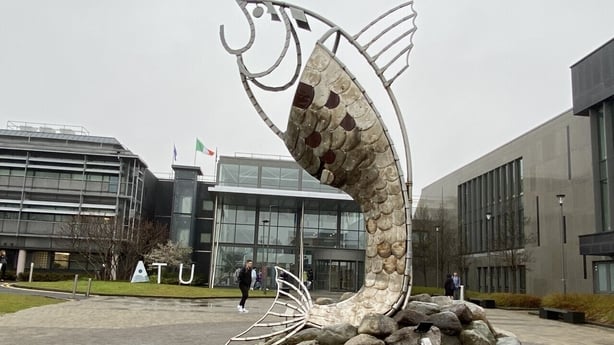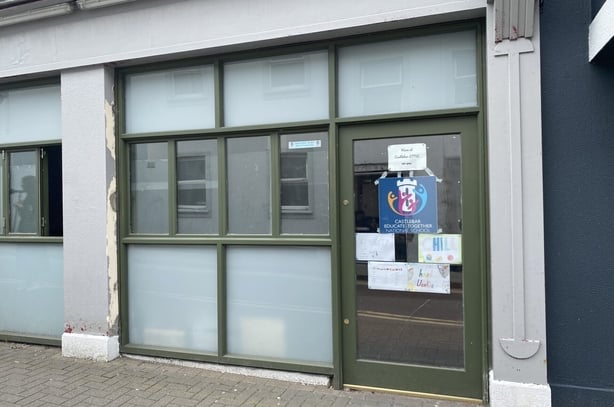
Teachers became a General Election talking point in recent days, thanks to comments made by Ryanair CEO Michael O'Leary at a Fine Gael campaign launch, but it is other issues in education that stand to influence how voters cast their ballots on 29 November.
Among them, the chronic shortfall in provision for children with additional needs.
"The first thing I will be asking anyone who calls to my door is what are they doing to return multi-disciplinary therapists into schools," says Eibhlín Gleeson, mother of five-year-old Artie, who has spent much of the past year campaigning hard to get therapists into Artie's special school, St Killian’s in Cork city.
"That is absolutely high on my list of priorities. It’s probably the top priority. Number two is the wider issue of disability services," she adds.

Eibhlín believes her priorities are shared not just by countless parents of children with additional needs up and down the country, but also by their voting "sisters and uncles, grannies and grandads".
In education, the issue of special needs provision is a huge one.
It encompasses not just the lack of therapeutic and other supports, but also the ongoing shortage of school places for children with additional needs, which persists despite the creation of more than 3,300 special classes over the past four years or so.
The campaign Eibhlín and other parents from St Killian’s Special School have waged in recent months has had some immediate success, thanks, she reckons, to local elected representatives.
"We protested. We contacted all elected representatives. We sat them down in the school and were very clear with them. We wanted them to work across party lines to sort this, and they did."
Three weeks ago, the school secured funding from the HSE to pay for therapies sourced privately for one term. It is a start, she says.
"[Among politicians] I think there is a deep understanding that things need to change and a recognition that this needs to be a priority."
It is a priority she and many others will be reminding politicians of when they knock on their door looking for their vote.
Third-level students
For thousands of third-level student voters, most of whom will be casting their ballot for the first time, their top issue is the housing crisis and the impact it is having on their lives.
Thousands of students have recently signed up to vote, but will they actually vote?
"Accommodation is the topic that will drive students to vote," says UCD Student Union President Miranda Bauer. "Students will be turning to parties they believe have better solutions to deal with the housing crisis."

The impact of the housing crisis for students is broad and deep. Miranda explains how many UCD students are commuting for up to two or even three hours, twice a day, because they cannot afford to rent close to their colleges.
Others are working long hours at part-time jobs to be able to pay exorbitant rents.
And some are doing both. "You have students who are getting up at 4.30 or 5am for a two-to-three-hour commute to college. Then they are going on to a part-time job, because of the cost of education, and then the same commute back, barely no sleep, and no extra-curricular activities," she says.
Closely tied in with the accommodation crisis is the high cost of living.
"A lot of students can’t get support from their families because a lot of families can’t afford to support them." Miranda acknowledges the "once-off" reduction in student fees for the past two years, but she says "a lot of people who need SUSI [grants] are falling through the cracks, and then there are all the hidden costs of education, the lab coats and lab goggles, expensive textbooks, the cost of mandatory field trips or placements".
It is no great surprise that the housing crisis is the major issue for students attending university in Dublin, but it is the number one issue too for many students attending Atlantic Technological University’s (ATU) Letterkenny campus, according to ATU Student Union Welfare/Equality Officer Áine Hatzer.
"It’s the lack of it. It’s all digs, and a lot of students don’t want to live in digs," she says. Just like in Dublin, the housing shortage is forcing many students to continue to live at home and to commute long distances. In Donegal this throws up additional challenges.
"In Donegal the public transport system is very limited. There are a lot of places that buses don’t go to. Some students are commuting from very remote areas, along small windy roads, and they are being forced to drive."

Among Donegal students, the related issue of the cost of living is huge too. According to Higher Education Authority data, this campus has the highest number of students (25%) coming from disadvantaged backgrounds.
Referencing the cost of groceries, Áine says, "everyone is struggling, of course students are struggling too".
Struggling too with the high cost of rent and housing are staff in schools, especially young staff and especially those working in or close to Dublin city.
Along with so many other workers, across so many sectors, this is likely to be a factor in how many of them decide to vote.
School accommodation
Last Wednesday, pupils and teachers at Castlebar Educate Together swapped their classrooms for the long road to Dublin and the gates of Leinster House to raise awareness as part of their long and ongoing battle for a fit for purpose home.
"It is just so frustrating," says principal Sarah Calvey.
Listing daily battles to resolve the litany of problems the school faces, she joked bleakly that perhaps the Ryanair CEO is right.
"I am a teacher of 22 years experience who is trying to 'get things done' but I can't, and it's not because of a lack of effort or energy, it's because we are met constantly by blockades, bureaucracy, and a lack of joined up thinking."
Currently divided between three highly unsuitable premises across the town, Castlebar ETNS is among a number of schools across the country that have been waging a campaign to have their needs addressed, but with no success so far.
Will these local campaigns in individual constituencies influence how some people vote?

"It is a massive one for me," says Castlebar parent Noel Campbell. "I have two children at the school. They have known nothing but moving, nothing but shoddy buildings.
"What parents here are saying is 'what is the point in having three Government TDs on the ground if they are not delivering?’
"They are going to be calling to my door and I will be saying 'you don’t get a vote unless you produce'."







